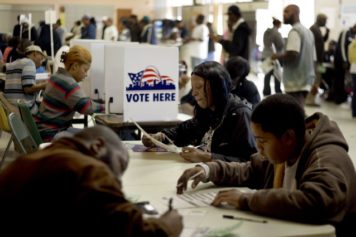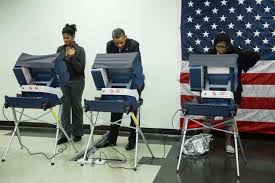In a vindication for those who are fighting the changes in voting rules across the country, a U.S. federal court has ruled that Florida’s decision to reduce the number of early voting days is a violation of 1965’s Voting Rights Act because it discriminates against minorities.
The court stopped the changes from going into effect in five of the state’s 67 counties. Lawyers who fought the voting changes likely will file suit now to stop the changes in the 62 other counties in the state by claiming that state law must be uniform.
The federal court ruling upheld a decision by the U.S. Justice Department. It is a significant victory for the activists who have been fighting the changes that Republican legislatures have been putting into law in states across the country. Using the federal court decision as a weapon, the activists will now be emboldened to mount more legal challenges around the country. Rev. Al Sharpton, head of the National Action Network and the host of the MSNBC show “Politics Nation,” said they were mounting a two-pronged strategy to fight the changes in the law and also to make sure voters of color had the necessary IDs to vote successfully.
The argument posed by the Justice Department and civil rights groups was that Florida’s 2011 law reducing the window for early voting from 96 hours per week to as few as 48 made it more difficult for minorities to vote than for whites. The three-judge panel of the U.S. District Court for the District of Columbia ruled that Florida had failed to prove that its law didn’t discriminate.
The decision potentially has huge implications for the November election because swing states like Ohio and Florida have implemented laws that many experts claim will reduce the vote totals for President Obama by suppressing the number of African Americans and Latinos who successfully cast ballots.
New York University’s Brennan Center for Justice released a study last year that said the new laws “may sharply tilt the political terrain for the 2012 election” by restricting voting access for up to 5 million people, mostly people of color, the poor and the elderly.


